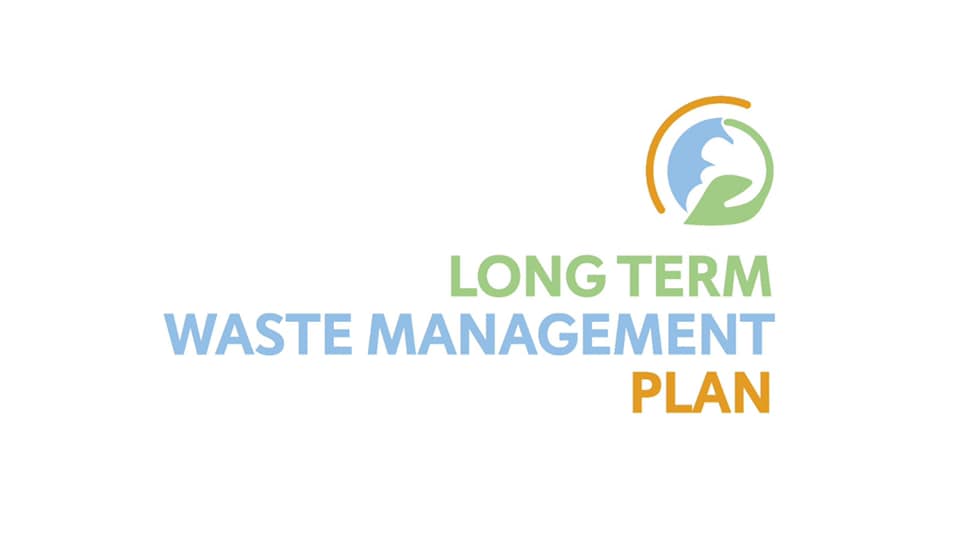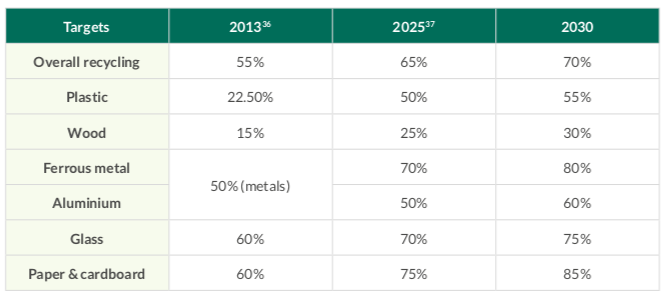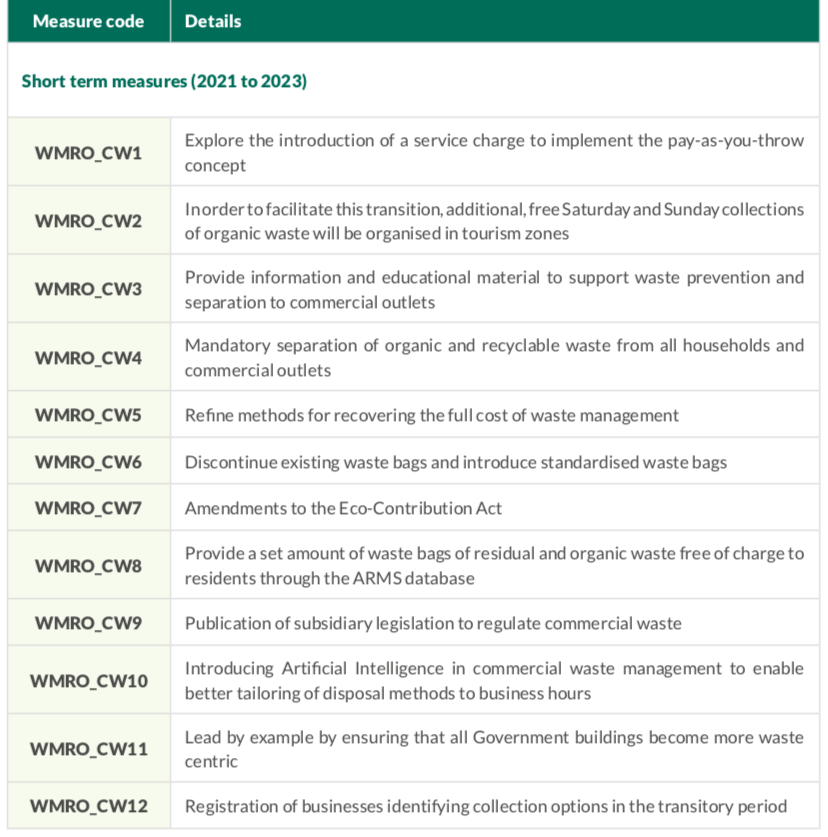Maltese furniture importers meet MEP Peter Agius to discuss unfair practices
19 December 2025
Following a request by Member of European Parliament Dr Peter Agius, the Malta Chamber of...

The Ministry for the Environment, Climate Change and Planning has developed a Waste Management Plan for the Maltese Islands 2021-2030, as mandated under the European Union Waste Framework Directive and as transposed in local legislation.
The consultation period is currently open and ends on the 31st of January.
Below you may view a summary of the plan and the main points which affects businesses:
The various measures have been split based on the timeline of short term (2021- 2023), medium term (2024-2027) and long term (2027-2030).

Key priority areas for the Waste Management Plan 2021-2030 have been identified in alignment with the strategic objectives.
These are as follows:
The plan mentions that voluntary initiatives will be encouraged, such as:
Some examples include offering loose vegetables, buy-in-bulk sections, offering local produce, water refill stations, displaying signs asking whether another bag is necessary, ‘plastic-free aisles’, educating on the difference between ‘use by’ and ‘best before’ dates, promoting SMART shopping, offering water refills, incentivising reusable cups for coffee and other beverages, sourcing local and seasonal produce, and developing a network of takeback containers for delivery. The Waste Management Plan state that the voluntary agreement would be established in cooperation with relevant industry bodies and stakeholders, and participating establishments would benefit from recognition and a standardised eco-label, developed in partnership with relevant stakeholders.
The WMP document states that “commercial waste producers are known to utilise the household collection service in order to avoid charges.” While the extent of this is issue remains unclear, an analysis of total collected waste by weight over time indicates a strong seasonal pattern to waste generation, where additional waste is entering the household collection system over the summer tourist season; this is aligned with the known boost to commercial activity over tourist season. New measures will be proposed in this Waste Management Plan to incorporate commercial waste from small establishments to be collected in the same round alongside domestic waste to maximise efficiency.
Commercial waste is defined in the Waste Regulations (S.L. 549.63) as waste which is generated “from premises used wholly or mainly used for the purposes of a trade or business or the purposes of sport, recreation or entertainment, excluding household waste, industrial waste and extractive waste91”.
The objective of the Ministry for the Environment, Climate Change and Planning is to incentivise the separation at source of municipal solid waste generated by the commercial sector. This should in turn lead to lower volumes of mixed waste (black bags) and increase the recycling rate. The ultimate aim is to maximise the resource value in commercial waste and to limit significantly the amount of residual waste sent for recovery and disposal.
The Ministry states that it will implement measures to promote the prevention of waste generation and secure the correct separation at source to maximise the recycling potential of organic and recyclable waste from commercial entities. This will be achieved not least through the introduction of a pay-as-you-throw mechanism in line with the Polluter Pays Principle.
The Waste Regulations (S.L. 549.63) already ascribe the duty of care of waste to its producers and holders, but to date, there are no specific regulatory obligations on owners or operators of commercial establishments to separate such waste at source, nor to manage the waste they generate. The only waste-related regulatory instrument applies to catering establishments, defined as “restaurants, snack-bars, bars, nightclubs/ discotheques and kiosks” duly licensed by the Malta Tourism Authority (S.L. 409.15), and for hotels and licensed tourism accommodation facilities (S.L. 409.04). These establishments are specifically obliged by their permit to engage a third-party contractor to collect their waste. However, there is still no mandate to separate this waste at source. Furthermore, the enforcement of this provision requires strengthening as it is currently considered weak.
Government pledged to regulate waste generated by the commercial sector as part of Budget 2019 (Measure 55 – Budget 2019). This had already been identified as a point of action in the Waste Management Plan 2014-2020, but no action had been taken to the detriment of public finances.

In order to address the negative implications and externalities associated with the current disposal model for commercial waste, a variety of measures are being proposed. These measures, to be implemented over three phases, will aim to move waste up the management hierarchy – through prevention and correct recycling – as well by reducing the reliance on limited landfill space. This will also support Malta’s transition to a more circular economy.
Measures enacted in the short term will aim to encourage a shift in practices towards waste prevention and proper separation. This will transition to a regulatory obligation thereafter.
This is the first step, intended to prompt preparatory voluntary action by commercial establishments to the reality that we must face up to.
Such collections are anticipated to take place on Saturdays and Sundays between 01:00 and 03:00 to dovetail with commercial business hours in tourism zones defined by Legal Notice 295 of 2007. Although the uptake of voluntary measures cannot readily be quantified, it is anticipated that participation will be forthcoming considering the collection service for separate organic waste from commercial establishments will be provided for free at a convenient hour enabling the immediate disposal of such waste.
In order to support the first steps of the transition towards from the new regulatory framework for the commercial sector, the Ministry will be providing information on ways to minimise waste generation, including plastics and food waste, as well as how to correctly separate waste.
These short-term measures are anticipated to lead to lower volumes of mixed waste (black bag) sent to landfill and hence increase the lifespan of the limited remaining landfill void space which is decreasing at an alarming rate. They will also result in an increase in the volume of organic waste which is separately collected for treatment in the upgraded Sant’Antnin facility from which clean energy is generated. The free Saturday and Sunday collection of organic waste from commercial establishments would also serve as an exercise upon which real data sets can be collected. These will enable the ground-truthing of approximated data in terms of waste generated by the commercial sector upon which operational models can be refined to reflect the true cost of waste management.
Following the measures to facilitate voluntary separation of organic waste for collection, a series of medium- term measures are being proposed to ensure the separation of organic and recyclable waste from commercial establishments. This should come into force in 2022, and it should also run in parallel with a number of actions listed in the long-term including the registration processes.
Regulations will be introduced mandating all households and commercial waste owners and operators to segregate their waste at source. Failure to separate organic waste at source will be considered an offence. This will be coupled by heightening the enforcement capacity to reinforce the strength of the measure. It is not envisaged that this measure will place significant financial burden on the businesses, with the main cost at this stage occurring in the form of waste bags – a cost which at present they already incur, alongside the time to train staff on correct separation. The information provided under Measure (WMRO_ CW3) which will support establishments in waste prevention initiatives, has the potential to lower waste generation and associated costs.
Such collections of organic waste are anticipated to take place on Saturdays and Sundays between 01:00 and 03:00 from tourism areas as defined for the purposes of Legal Notice 295 of 2007. This service will be provided throughout 2022 or until dedicated smart waste bins are installed for such purposes.
Provide information and educational material to support waste prevention and separation to commercial outlets (WMRO_CW3). In partnership with industry and business representatives, the Ministry will develop and distribute educational material to inform commercial establishments of the new requirements, as well as formal guidance on how to correctly separate waste steams for recycling.
The pay as you throw (PAYT) system will be implemented to incentivise the prevention, and correct separation, of waste from commercial establishments as of 2023. PAYT is considered to be the building block of an efficient and effective operational model, flexible enough to cater for the diverse needs of the commercial sector, without impinging on the quality or cost of services provided to residents.
The PAYT system will enable commercial establishments to join the national effort to divert as much waste as possible away from landfill, whilst maximising the intrinsic resource value of waste and contributing to our waste targets. Conscious businesses who embark upon separation at source will bear a lower cost of waste management than those who are more careless.
In order to maximise existing collection logistics, two systems are proposed, intended to run in parallel and ensure full cost recovery, and which reflects the unit volume and type of waste generated. These two mechanisms are namely:
a) Commercial establishments currently engaging licensed waste carriers for the collection of waste through direct contractual agreements, can retain such model but must guarantee the separate collection of waste fractions;
b) Consolidating the waste collection service offered by local Government against an administrative fee.
Design new organic and residual waste bags to an approved standard and impose an eco-tax equivalent to cover the collection and treatment costs of its contents. Such waste bags would be see-through to enable swifter enforcement action based on the mandatory waste separation provisions. Subsequently, the system of black bags available at retail outlets without pre-payment features would be discontinued. This would require the amendment of the Eco-contribution Act.
The black bags are currently purchased at any retail outlet. The price of these bags is based solely on the cost of its production, importation and an excise duty, and does not feature any pre-payment for its collection or disposal. It is being proposed to discontinue this system and introduce a pre-payment feature based on the volume of the waste bag and the type of waste it should contain. For the purpose of the new model of waste segregation for collection, new organic and residual waste bags will be designed to an approved standard, with the intention of distinguishing them from existing bags.
A pre-paid service charge will characterise the cost of the different bags which is intended to cover the collection and treatment costs of each waste stream. The inclusion of a service charge on waste bags shall implement the PAYT principle through unit-based pricing. Rates for residual and organic waste will be differentiated to incentivise the minimisation of waste and the separation of waste generated thereby having a realistic chance to meet Malta’s waste management targets.
The proposed service charge would be applicable to households. Conscious that this can have a more significant burden on low-income households and in order to respect Government’s choice not to impose waste charges on households, it is being proposed that a set amount of black waste bags for mixed and white waste bags for organic waste is provided for free to complement the current system. The ARMS database classifies buildings according to their current use, thereby permitting the easy identification of residential premises and the number of persons registered therein.
The obligations of owners and operators of commercial establishments shall be set in subsidiary legislation to include the mandatory provisions to register their activity, the obligation to separate waste at source, and the exclusive use of waste bags compliant with national standards with a pre-paid fee for its collection and treatment.
Recognising that households and commercial establishments have different operational hours, it is intended to make the process for commercial establishments to deposit their waste as hassle-free as possible, without impinging upon street cleanliness. To this effect, smart waste depots for residual and organic waste will be set up, such that they may be accessed ‘on demand’ by commercial establishments through the integration of Artificial Intelligence. Local Councils will be responsible to identify sites for the smart waste depots according to the density of commercial outlets.
As part of the first phase of this programme, it is also proposed to include all Government buildings in these requirements such that Government may lead by example. This means that waste generated from Government buildings would be subject to the same regulatory regime as that of commercial establishments thus ensuring a level business playing field in this respect.
These initiatives are part of the national effort to divert waste away from landfill, maximise the intrinsic resource value of waste, contribute to Malta’s achievement of EU targets and to support in the transition towards a more resource-efficient and circular economy.
Registration of businesses identifying collection options in the transitory period (WMRO_CW12). In order to comply with the ‘once only’ principle for the request of data, the commercial establishments to be included will be those who are already registered with an entity of Government in terms of another regulatory provision. This would include establishments who handle food and who are already registered with the Public Health Department and for whom automatic registration would be possible. Once the Business Register, being compiled by Business First, is complete, then all establishments under this Register will be brought into the system automatically.
Commercial establishments who already have contractual agreements with waste carriers shall be given the choice to retain this system. However, all other establishments will be obliged to subscribe to the collection organised by the Local Council.
The Malta Chamber of SMEs represents over 7,000 members from over 90 different sectors which in their majority are either small or medium sized companies, and such issues like the one we're experiencing right now, it's important to be united. Malta Chamber of SMEs offers a number of different services tailored to its members' individual requirements' and necessities. These range from general services offered to all members to more individual & bespoke services catered for specific requirements.
A membership with Malta Chamber of SMEs will guarantee that you are constantly updated and informed with different opportunities which will directly benefit your business and help you grow. It also entails you to a number of services which in their majority are free of charge and offered exclusively to its members (in their majority all free of charge).